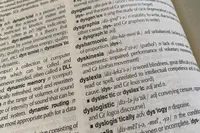Course of Autism. Training in autistic children
ByOnlinecourses55
452416

Autism [ASD] Course Information
Our [Caring for Children with Autism] course is designed for parents and caregivers who want to gain a deeper understanding of autism spectrum disorder [ASD] and support their children's growth.
Through interactive modules and specialized resources, we provide up-to-date information and useful tactics to address the day-to-day challenges families face.
At the conclusion, participants will earn a certificate of completion that supports the skills obtained.
Course Details
- Hours of video 9
- Hours of study 72
- Videos 114
- Test 114
- Level to Expert Level
- Language English
- Certificate of studies
- Lifetime access
- 7 Days of warranty
- Secure payment with SSL
- We accept all forms of payment
























